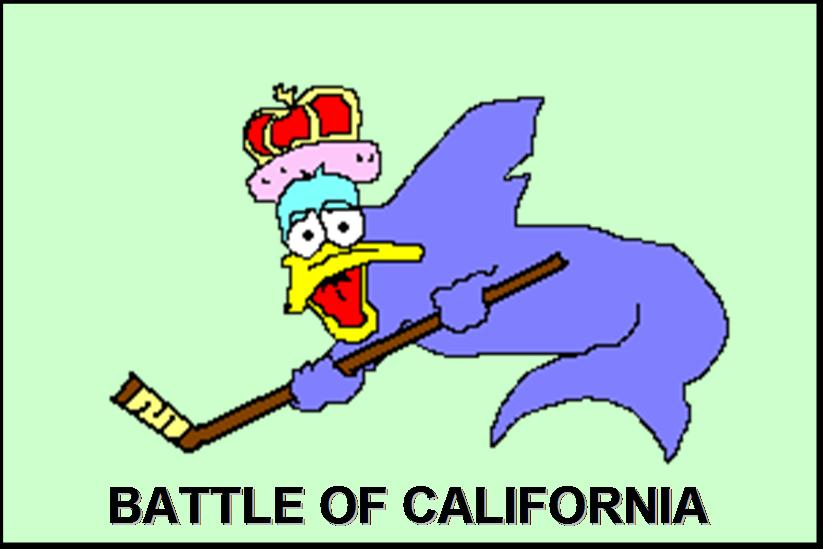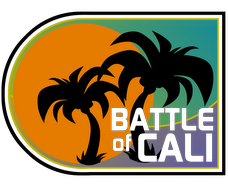Ducks in Review: Anaheim’s road to the Stanley Cup Finals
Regulation Standings since Christmas:
Rank | Team | GP | W-L-T | Win Pct. | GF – GA = GD |
|---|---|---|---|---|---|
1 | Ottawa | 45 | 28-7-10 | .733 | 165 – 101 = +64 |
2 | Detroit | 47 | 25-10-12 | .660 | 151 – 114 = +37 |
3 | Vancouver | 46 | 21-8-17 | .641 | 131 – 100 = +31 |
4 | Minnesota | 47 | 24-11-12 | .638 | 131 – 90 = +41 |
These standings represent a team's record (regular season only) at the end of regulation--any results in overtime or a shootout are treated as ties, both in the win column as well as the goal tallies. Admittedly, this table is sort of designed retrospectively, but it is revealing nevertheless. Anaheim has had a difficult set of opponents thus far, and according to these standings will have faced the top four teams in the league before these playoffs are over.
I've argued before that the Ducks should be high on this chart as well (a 2-9-2 injury stretch really throws a wrench in their numbers), so I won't belabor that again, but let's take a look back how the Ducks have been able to overcome some of the better teams going into these playoffs.
Round One: Minnesota Wild
 The Wild on paper were a scary team; they led the league in goals-against and had a whopping 33-8-6 record with Marion Gaborik in the lineup. Goaltender Niklas Backstrom helped anchor the 2nd best penalty kill and had not surrendered more than 2 goals in a game in over a month.
The Wild on paper were a scary team; they led the league in goals-against and had a whopping 33-8-6 record with Marion Gaborik in the lineup. Goaltender Niklas Backstrom helped anchor the 2nd best penalty kill and had not surrendered more than 2 goals in a game in over a month.Indeed, the postseason Wild were stingy, only allowing the Ducks 8 hard-fought goals through the first 4 games. I still maintain that Backstrom was the toughest goaltender for the Ducks to beat in these playoffs, but they managed enough goals to win the first three games, and from there it became largely academic.
The real stories for the Ducks were on the defensive end of the ice. Despite power play time being 51 minutes for Minnesota to 33 minutes for Anaheim (a theme we’ll see later), the Ducks outscored Minnesota’s power play 5 - 2, with a shorthanded goal each. Probably the most impressive part of this was the fact that crazy Russian Ilya Bryzgalov was the surprise starter for G1, and was able to hold the fort through the next three starts as well.
In the end, the Wild proved too reliant on their top line for scoring, and couldn't take advantage of their special teams. The Ducks, meanwhile, were able to put enough pucks and bodies towards Backstrom to force enough goals to win. Perhaps understated were injuries to key defensemen: the Ducks lost G4 without the services of Francois Beauchemin and the Wild lost G5 without the services of Kim Johnsson (I hate you, Brad May).
The cartoon above is easily the most mean-spirited (and thus most popular) thing I think I’ve published on this blog; click here to see why it’s somewhat justified.
Round Two: Vancouver Canucks
 The Canucks were a team built around their goaltender, Roberto Luongo, as well as the offense produced by the Henrik and Daniel Sedin. They generally kept everything low-scoring enough to allow their goaltender to be the difference in games, led the league in penalty-killing, and rarely lost games in regulation.
The Canucks were a team built around their goaltender, Roberto Luongo, as well as the offense produced by the Henrik and Daniel Sedin. They generally kept everything low-scoring enough to allow their goaltender to be the difference in games, led the league in penalty-killing, and rarely lost games in regulation.Vancouver came into round two a beat-up squad, as they had just come off a G7 win over Dallas and were playing without defensemen Sami Salo and Kevin Bieksa, to start. And of course that showed in G1, as the Ducks cruised to a 5-1 win, and I lost my lucky hat.
After that, though, Vancouver got its wits about it and played the type of game that earned them success in the regular season—Luongo became a Hart-worthy goalie again, and the team protected neutral ice a lot better. The final four games all were one-goal decisions (3 decided in overtime), and the Ducks only managed to outscore the Canucks 9 - 7 after G1.
Again, the Ducks’ defense came up huge, as the Canucks managed only one power play goal in more than 50 minutes of power play time. J.S. Giguere lost an overtime game for the first time in his playoff career, but he has bounced back and won his last four OT games since.
Round Three: Detroit Red Wings
 I really haven’t had much time to properly recap this series, as immediately the cry after G6 was “On to Ottawa!”, but Detroit provided the Ducks with their most formidable foe to date. Detroit’s regular-season specialty was limiting shots-against on Dominik Hasek and winning games on home ice, and they ended the season 2nd in goals-against.
I really haven’t had much time to properly recap this series, as immediately the cry after G6 was “On to Ottawa!”, but Detroit provided the Ducks with their most formidable foe to date. Detroit’s regular-season specialty was limiting shots-against on Dominik Hasek and winning games on home ice, and they ended the season 2nd in goals-against.For sure, a huge factor in this series were blueline injuries to Niklas Kronvall late in the season and Mathieu Schneider late in round two, but even so the Ducks managed without Chris Pronger suspended for G4 and Chris Kunitz hurt in G1 as well. The teams played largely even, despite the fact that Detroit’s power play scored 9 goals in 68 minutes, and Anaheim’s only got 4 goals in 48 minutes.
I don’t want to trivialize Detroit’s effort, because it was huge, but as the series went on things started to go Anaheim’s way, in particular to Teemu Selanne and the power play, both of which went scoreless in the first three games. The wins weren’t overwhelming, but the fact that the Ducks were able to pull two overtime wins and not get blown out in Detroit was huge. And while Pronger certainly blew his top in the G3 stinker, you gotta give the big guy credit—Detroit could not score against him.
This series more than the others hinged on a single moment, though: the fluky G5 game tying-goal with 48 seconds left in regulation. It really was a series that could have gone either way, but the Ducks found the will and the bounces to win.
Certainly, you cannot talk about any of these series wins without using the term “fortunate”—they all proved to be tough-to-score-on, tough-to-beat teams. And now perhaps we are looking at the best one of them all. But if we're talking adversity, that's not new. If we're talking streaks and stats favoring the other squad, that's not new. If we're talking Maggie the Monkey picking against the Ducks, that's not new either (she has yet to pick a CA team in any series this playoffs).
Time to throw the stats out the window, roll up those sleeves, and beat another contender. Welcome to Anaheim, Ottawa. Leave your streak at the door.
Go Ducks.









4 comments:
Good stuff, Earl. I don't know why, but it makes me laugh that Luongo has his glove out of the window of his car, like he's trying to get someone to let him over.
Frighteningly un-biased! Even so, not sure about Backstrom being the toughest goalie you guys faced. Then again, Luongo's mistake after the Niedermayer penalty made up for all his spectacular saves throughout the series. As a Canucks fan, I have to say that a) Travis Moen is one annoying bastard, and b) Sammy Pahlsson cost us the series through his crease-side slight of hand.
Even so, not sure about Backstrom being the toughest goalie you guys faced. Then again, Luongo's mistake after the Niedermayer penalty made up for all his spectacular saves throughout the series
Don't get me too wrong--Luongo was very good late in the series, but he did have moments that he wasn't very hard to beat, mainly in G1.
Backstrom had no such stretch. I can't think of a single bad goal he allowed, and I can think of several big saves that he made. Generally, Backstrom played the most consistently errorless game--start to finish--out of any of the three.
You could learn a thing or two from the Sabres' declaration of war.
Post a Comment